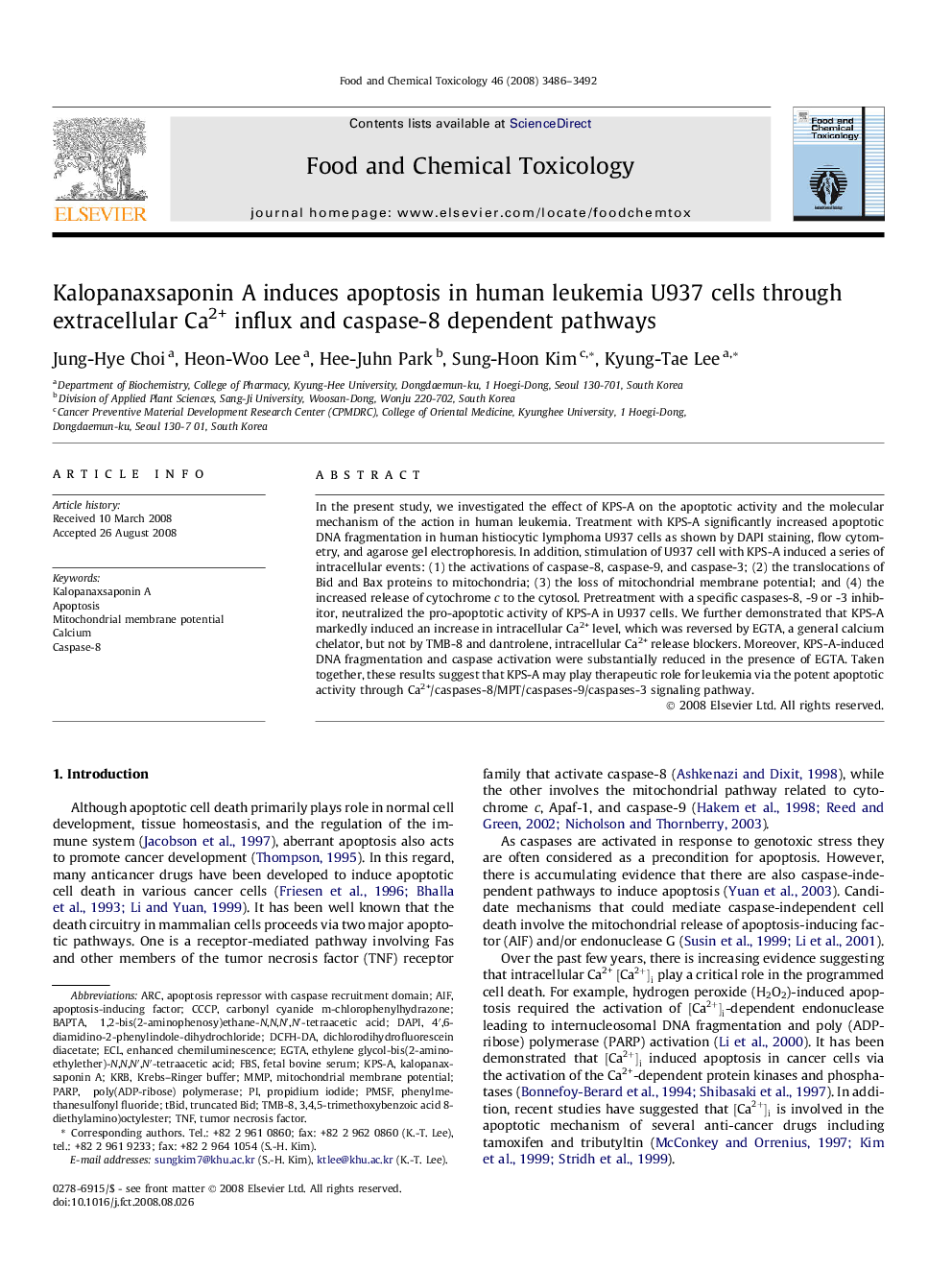| Article ID | Journal | Published Year | Pages | File Type |
|---|---|---|---|---|
| 2586368 | Food and Chemical Toxicology | 2008 | 7 Pages |
In the present study, we investigated the effect of KPS-A on the apoptotic activity and the molecular mechanism of the action in human leukemia. Treatment with KPS-A significantly increased apoptotic DNA fragmentation in human histiocytic lymphoma U937 cells as shown by DAPI staining, flow cytometry, and agarose gel electrophoresis. In addition, stimulation of U937 cell with KPS-A induced a series of intracellular events: (1) the activations of caspase-8, caspase-9, and caspase-3; (2) the translocations of Bid and Bax proteins to mitochondria; (3) the loss of mitochondrial membrane potential; and (4) the increased release of cytochrome c to the cytosol. Pretreatment with a specific caspases-8, -9 or -3 inhibitor, neutralized the pro-apoptotic activity of KPS-A in U937 cells. We further demonstrated that KPS-A markedly induced an increase in intracellular Ca2+ level, which was reversed by EGTA, a general calcium chelator, but not by TMB-8 and dantrolene, intracellular Ca2+ release blockers. Moreover, KPS-A-induced DNA fragmentation and caspase activation were substantially reduced in the presence of EGTA. Taken together, these results suggest that KPS-A may play therapeutic role for leukemia via the potent apoptotic activity through Ca2+/caspases-8/MPT/caspases-9/caspases-3 signaling pathway.
